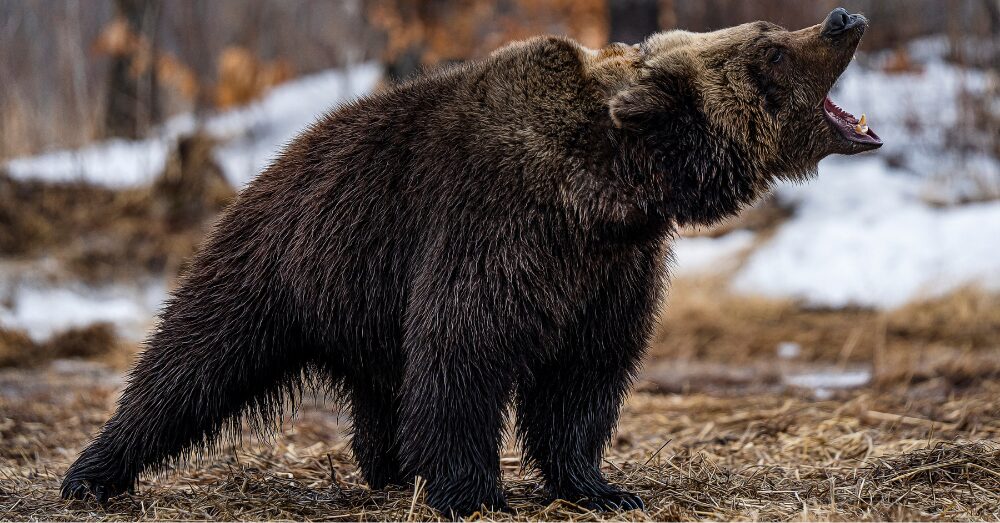If you’re going to hike and camp in an area that’s known for bears, you want to know how to set up a bear-safe campsite to ensure you can be as safe as possible.
The goal of bear-proofing your camp is to minimize odors that can attract bears. This means putting enough distance between various food stations and your sleeping area to avoid a bear attacking you while you sleep. It’s important to put enough space between your sleeping area and any area where food is handled. It’s also important to make sure your campsite is set up with the sleeping area upwind of the kitchen, food storage, and washing areas.
Distance matters
It might sound like overkill, but not if you find a bear in your tent at night. Bears can be extremely dangerous, especially when looking for food. They don’t often attack people, but do you really want to take that chance? Your food handling and cooking area needs to be at least 200 feet away from your sleeping area. It’s a good idea to have three separate spaces for cooking, food handling and storage, and washing. Your food should be stored in bags at least 12-15 feet above the ground and at least 8 feet away from the trunk to keep bears from reaching it easily.
How do you plan for your trip into bear country?
When you’re going to camp in an area that’s known for bears, you’ve got to be prepared. If you have children along, it’s important that you cover some of the preparations that must be taken as well. Here are a few tips to help you plan ahead for your trip:
- Contact the local wildlife agency and learn about bear activity in the area and what you should do. If bears have recently given birth to cubs, you might be told to reschedule your visit.
- Learn about bear behavior and what to watch for when you’re in bear territory
- Try not to pack odorous food and non-food items. These include fragrance items, cosmetics, and toiletries. You will get stinky, but that’s part of camping. Use bear-proof containers, doubled plastic bags, or airtight canisters to seal in odors
- Bring extra bags for leftovers and for packing out garbage
- Bring a flashlight and binoculars
- Leave your dog at home or keep it leashed when camping
What should you do when hiking in bear country?
Most bears are afraid of humans and will stay away, but a protective mother isn’t afraid of anything, and some hungry bears might see you or your hiking group as their next meal. Some things you can do to stay safe while hiking are:
- Travel in groups, don’t let children run ahead or wander off
- Stay on the trail and avoid hiking at night
- Stay alert, announce your presence by wearing bells, singing, clapping, or talking loudly
- Use bear-proof trash containers for garbage or carry it out in sealed plastic bags
- Don’t surprise a bear. When traveling toward blind curves or dense vegetation, move noisily while approaching to give a bear a warning that you’re in the area
- Avoid areas with animal carcasses, which can be identified by circling birds and offensive odors
- Don’t leave food or backpacks unattended
Additional camping guidelines in bear country
In addition to placing the food preparation and storage area far away from the tents and campsite, you’ve got to cover some precautions that everyone must follow to ensure bears don’t enter the sleeping area. Some of these are:
- Choose a campsite away from dense vegetation and natural pathways. Don’t choose messy areas with bear signs
- Secure all scented items in the bear bags hanging from the tree
- Don’t sleep outside of the tent or with any smellable items. This includes empty food wrappers or even wrapped items for late-night snacking
- Ensure tent, sleeping bags, and your skin are free of lingering food odors
- Don’t leave any food scraps or garbage out in the open
- Dispose of waste at least 100 feet from the sleeping area
- Use sealed bags and airtight containers for all garbage and cooking clothes
What should you do if you have a bear encounter?
Bears are naturally afraid of humans, but some have become accustomed to people in their area, especially along hiking trails. You never want to feed or approach bears, but if you have a bear encounter, you should:
- Stay calm, easier said than done, but it will help a lot
- Don’t run, this could cause the bear to want to chase you
- Pick up small children so they don’t run, scream, or panic
- Keep your group together and restrain your dog
- Talk in a soothing voice to the bear and lift your arms overhead to look bigger
- Slowly back away from the bear, while talking calmly
- If the bear makes any moves to show they feel threatened, or that you are too close, back away slowly without turning your back on the bear
- If a bear rushes you, hold your ground and then back away. They often do this in a “bluffing” tactic to intimidate you.
- Leave the bear a clear escape route
- Make a very wide detour around the bear once you have backed away
Use these tips to have a safe and enjoyable camping trip in an area inhabited by bears. Keep in mind, you are visiting their home, not the other way around.

